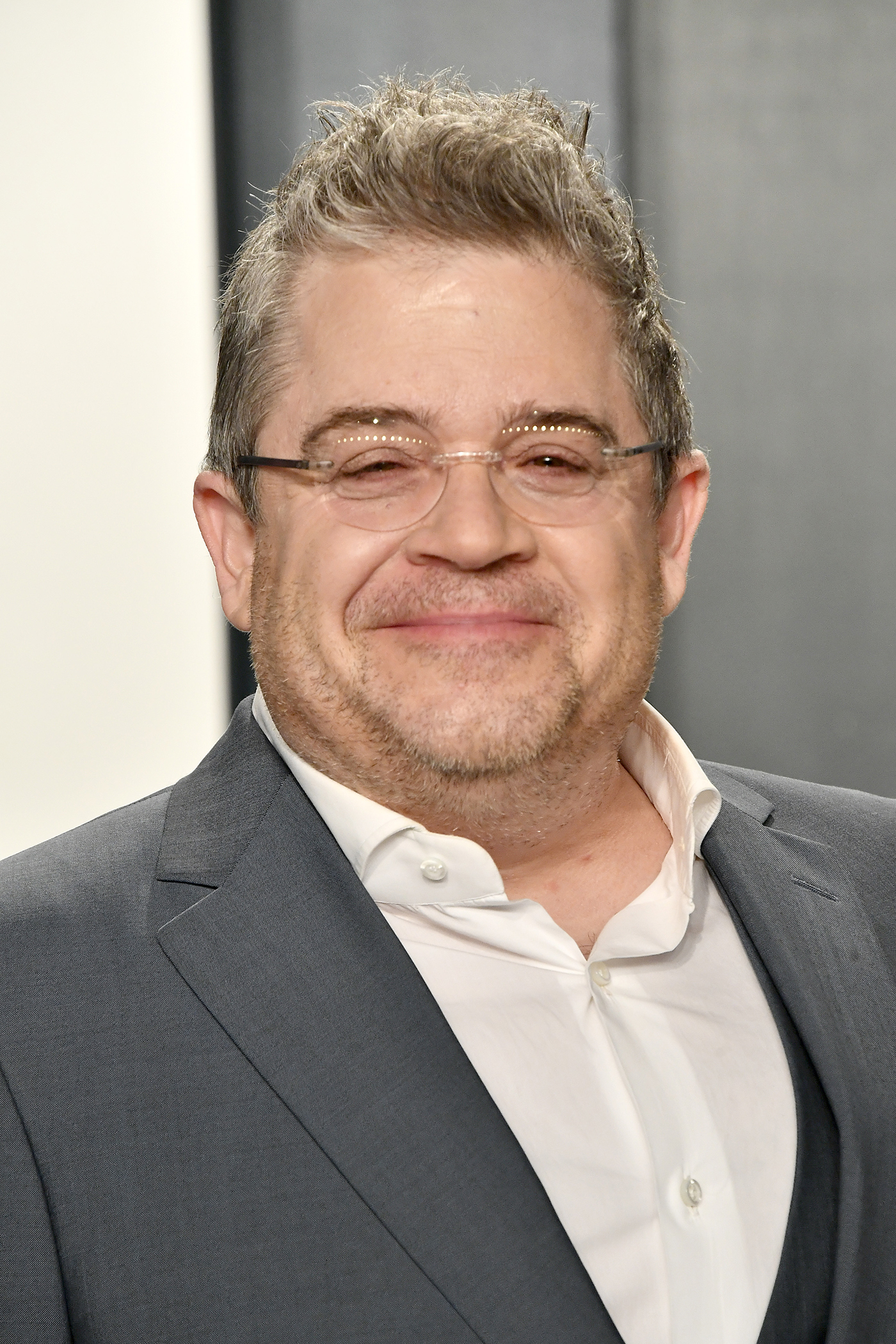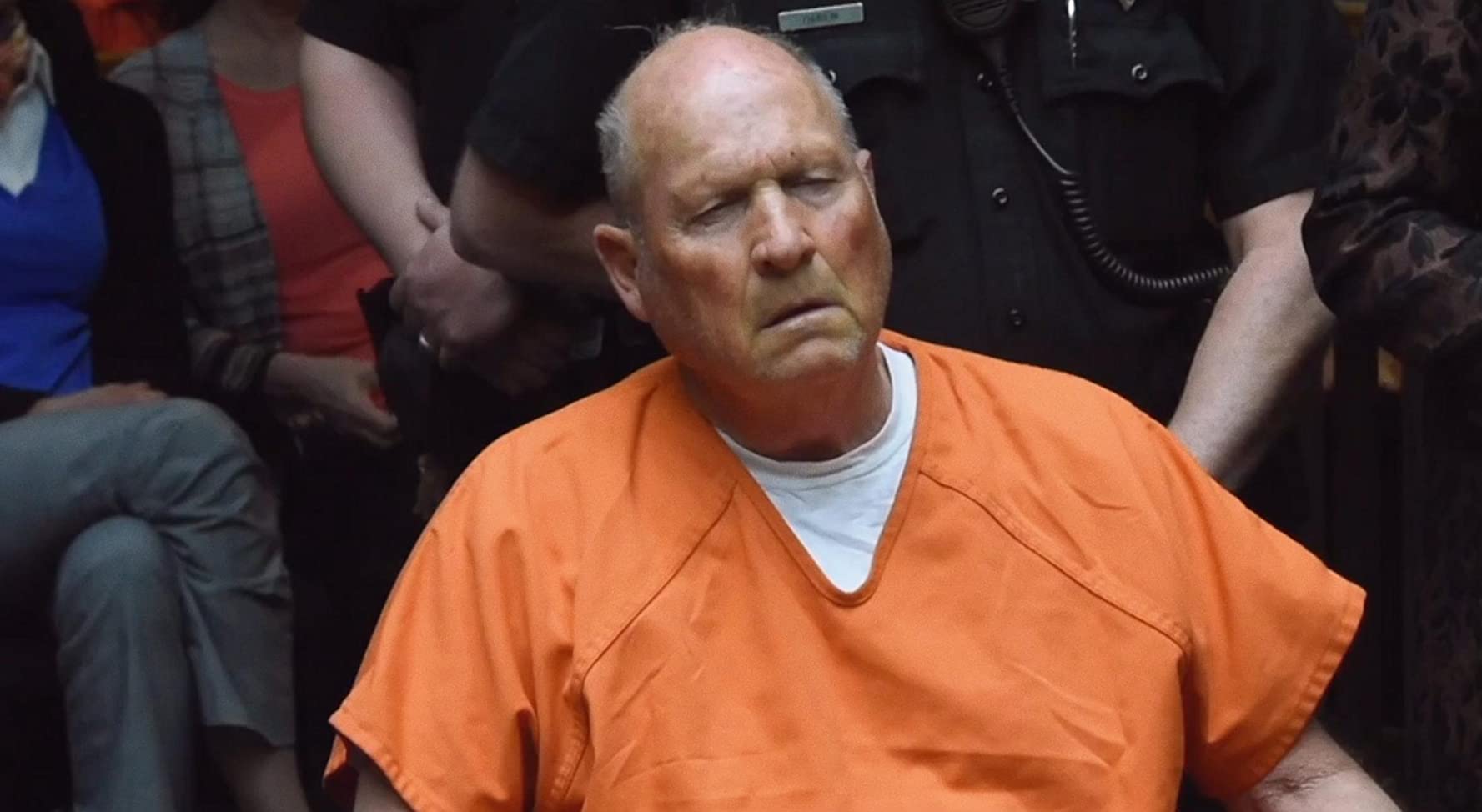
- Interviews
Patton Oswalt on “I’ll Be Gone in the Dark”
Standup comedian-actor Patton Oswalt is primarily known for starring in The King of Queens and Agents of S.H.I.E.L.D., but his new “role” is both his most personal, and his most challenging to date. Changing gear substantially, he has embarked on a decidedly grim journey into the mind of his late wife, true crime writer and journalist Michelle McNamara, in helping put together the six-part HBO television documentary series, I’ll Be Gone in the Dark. In doing so, he has brought full circle her obsession with The Golden State Killer (whom we now know as Joseph James DeAngelo), a masked assailant who murdered and raped women in California during the ‘70s and ‘80s. Tragically, Michelle did not live to see DeAngelo’s arrest in 2018 – she died in her sleep in April 2016, in what was later ruled an accidental overdose of drugs in conjunction with her ongoing condition of atherosclerosis.
I’ll Be Gone in the Dark is a six-part documentary, based on McNamara’s book of the same name, which was published nearly two years after her death – having been updated and finished by true crime writers Paul Haynes and Billy Jensen – and two months before DeAngelo, now 74, was captured. The ominous title is derived from something DeAngelo told one of his rape victims, known only as Victim #10: “You’ll be silent forever, and I’ll be gone in the dark.”

Though Oswalt, 51, remarried in 2017 – he and second wife Meredith Salenger are now raising his and McNamara’s daughter Alice – he admits that he is still reeling over the death of his first wife. “The loss is still overwhelming, and I am still just trying to survive it,” he says. The couple was married from 2005 until her accidental passing.
The documentary implies that the stress of working on the book might have led to Michelle’s dependency on sleep aids and other substances. In light of that, does it feel that the book stole her from you in a way?
I don’t think of it in such dramatic terms. I think that the book may have exacerbated some problems that were already there, but I try not to think of it in those terms.
How much of the book was finished by Michelle? What was your impact and what were the biggest challenges?
I think my impact on the book was taking all of the unfinished material and handing it over to Billy Jensen [crime writer/TV producer] and Paul Haynes [Michelle’s research partner] and begging them to help structure it. I certainly didn’t do any writing except for the afterword. There was no way I could finish her sentences or her paragraphs. The level that she was writing on is not the level that I work on. So, I simply handed it over to them and I thought they did an amazing job.
This must have been particularly difficult material for someone who has chosen to spend his life making people laugh.
It was hard for me to find any kind of comedy in the case and especially when you know what all the victims went through and how enormous this guy’s crimes were. In fact, I think the only comedy I got out of it was more on the domestic front, where Michelle was so very much into this very, very dark real true crime stuff, and yet she was squeamish about watching horror movies – which are fake, of course. There was some comedy in there in that juxtaposition, but as far as finding comedy in this case, I certainly couldn’t.
Can you describe your emotions when you heard the news that the killer was arrested? Do you believe in justice?
I do believe in justice, although – especially lately – there doesn’t seem to be a lot of justice in the world. When I heard DeAngelo had been captured, obviously my mind first went to Michelle, and to the bittersweetness of her not being there to see it, but then it went to the victims and survivors. I was hoping that they felt some sense of sanity and order and peace in the universe. But whether or not there is justice, I think that is more for the victims than for me to comment on.
When it was announced that the killer was caught, you stated that you wanted to meet him and ask him some questions that your late wife had wanted to be answered. Did you meet him?
No. And I don’t think I ever will honestly. From what I understand from the investigators I’ve spoken to; he is not very forthcoming about anything – he just seems to be shut down. I did want to go through that piece of writing that Michelle did, the “Letter to an Old Man” that she wrote at the end of the book, and ask the questions that arose from it, but I know it will never happen.
Has the process of making the documentary taught you anything new about Michelle?
No, I mean we were so open with each other about everything. We would tell each other everything that we were thinking and doing and everything that we’d done, I knew her whole story. The only things that were surprising were the stories that I’d previously heard, but now heard again from different angles and with different perspectives. That was always interesting to hear and to see how many people she had touched and affected in her life.
What would you like the audience to take away?
The first thing that really comes to mind is that I hope they really get into the stories of the victims, the survivors, and the families of the victims, and understand how resilient and strong they have been in living and thriving even after encountering this evil zilch of a human being. I really, really hope that that gives people a sense of hope and humanity.